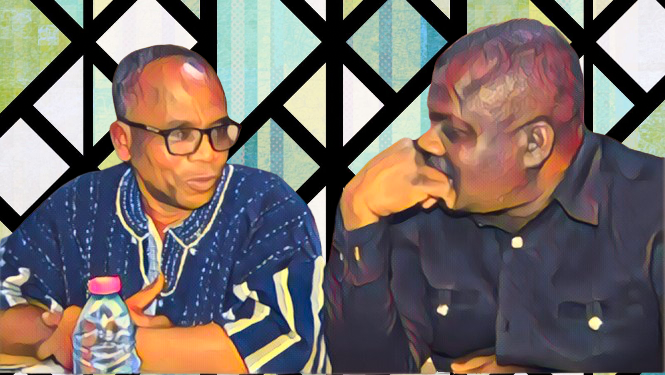The Chairman of the National Media Commission (NMC) in Ghana, Yaw Boadu Ayeboafoh, has sparked a debate with his opposition to the Ghana Journalists Association’s (GJA) recent decision to implement a media blackout against individuals accused of assaulting journalists. This stance was made clear during his address at a workshop organized by the GJA with support from the US Embassy in Accra, aimed at fostering peaceful media platforms ahead of the 2024 elections.
The workshop’s backdrop was the GJA’s response to alleged attacks on journalists by two Members of Parliament from the New Patriotic Party during party primaries, which led to the controversial call for a boycott. Boadu-Ayeboafoh criticized the blackout strategy as counterproductive, suggesting that it does not align with the public interest or effectively address the issue of impunity. According to him, while the condemnation of attacks on journalists is necessary, a unilateral decision to boycott is not the most productive reaction.
Instead, the NMC Chairman advocated for victims to seek redress through official channels, such as reporting to the NMC’s Mechanism for the Safety of Journalists and the Ghana Police Service. He believes that this approach ensures both the media freedom aspect and the criminal dimension are thoroughly investigated, with the appropriate legal actions taken against offenders.
In contrast, GJA President Albert Dwumfour defended the association’s directive, asserting that blacklisting the accused not only reduces their media visibility but also impacts their international image and future career prospects. Dwumfour emphasized that the police had been notified of the incidents, yet the suspects had not been called in for questioning, making the media blackout a necessary measure.
According to a report by Graphic Online, the workshop also aimed to provide professional development for online editors, producers, and talk show hosts, enhancing their ability to contribute to violence-free media platforms. With the next election predicted to be highly contested and the regional insecurity coupled with economic challenges, there’s an increased need for journalists to focus on policy issues and maintain a peaceful discourse, essential for a successful and peaceful election in December 2024.





4 comments
Your article helped me a lot, is there any more related content? Thanks!
Thanks for sharing. I read many of your blog posts, cool, your blog is very good. https://www.binance.info/register?ref=IXBIAFVY
I don’t think the title of your article matches the content lol. Just kidding, mainly because I had some doubts after reading the article.
I don’t think the title of your article matches the content lol. Just kidding, mainly because I had some doubts after reading the article.